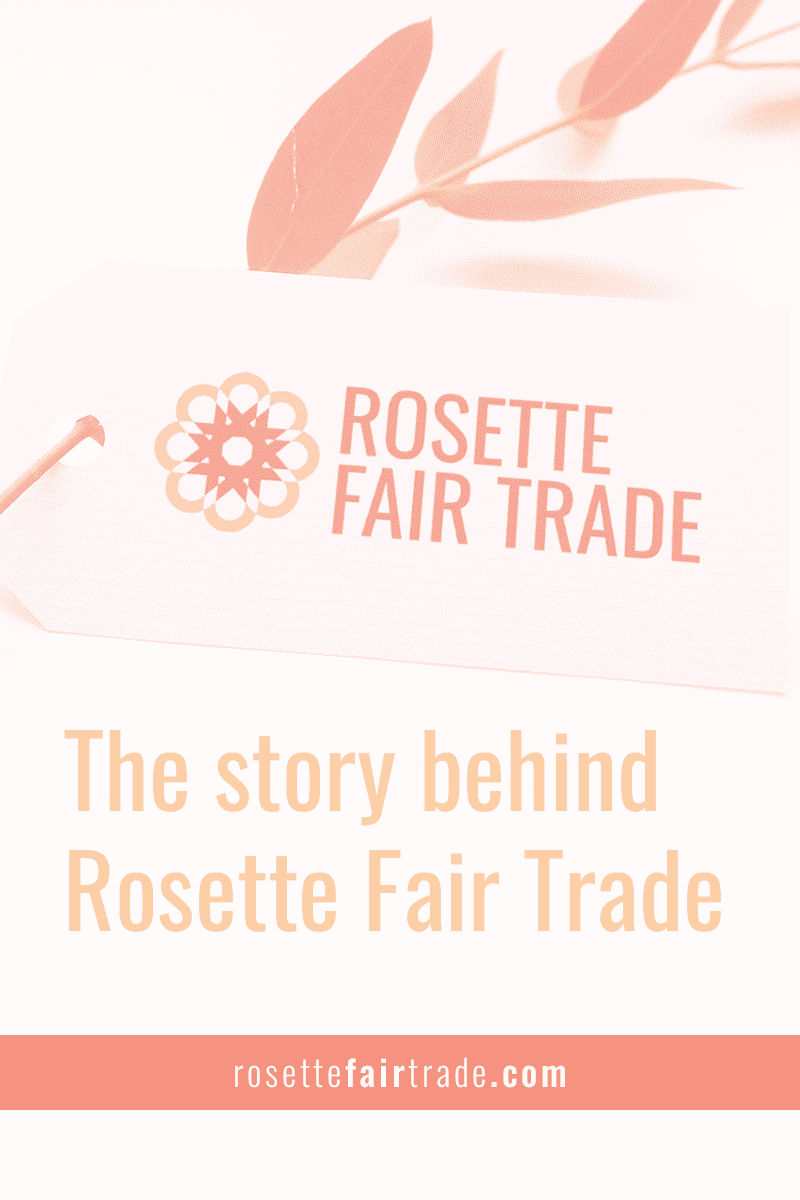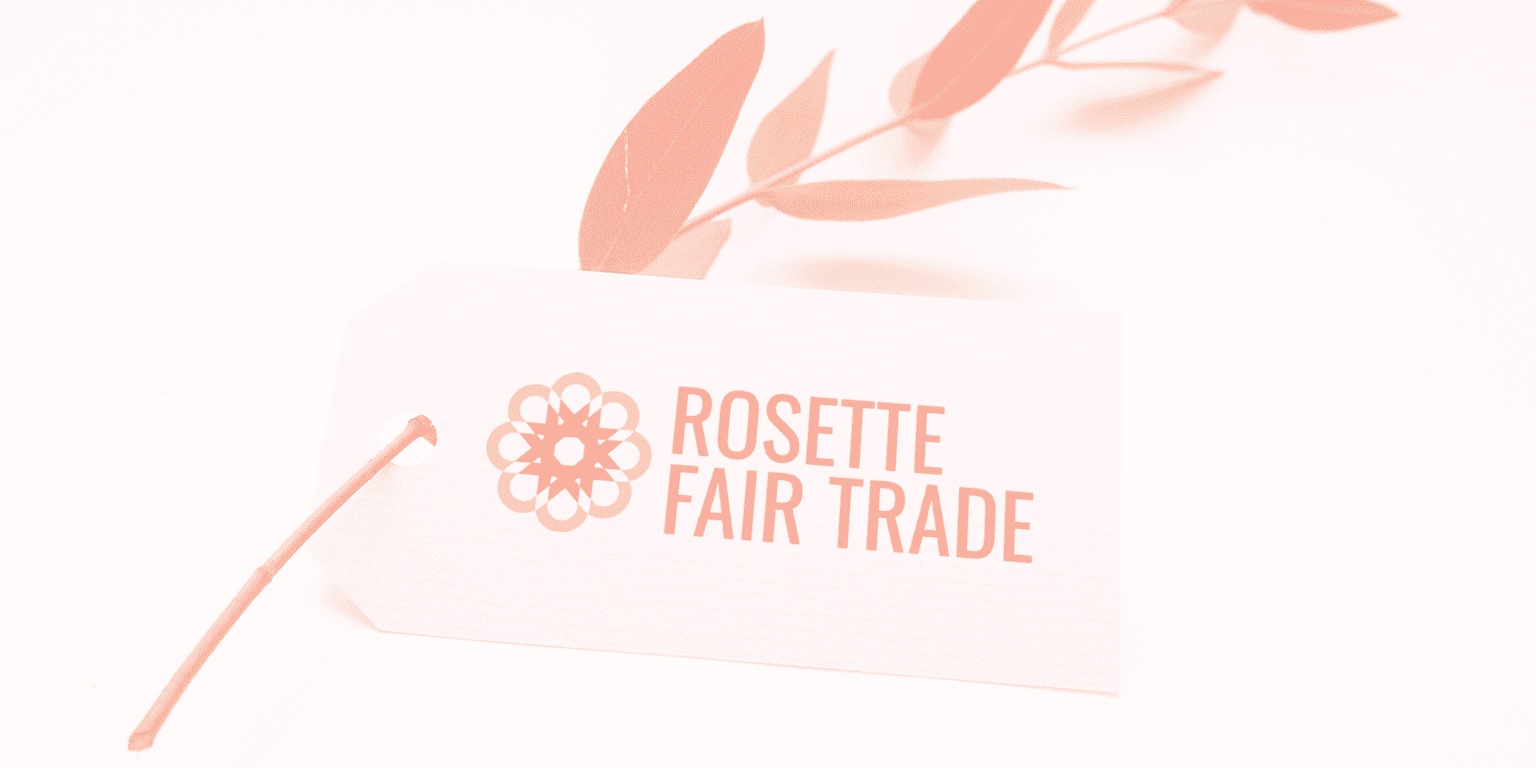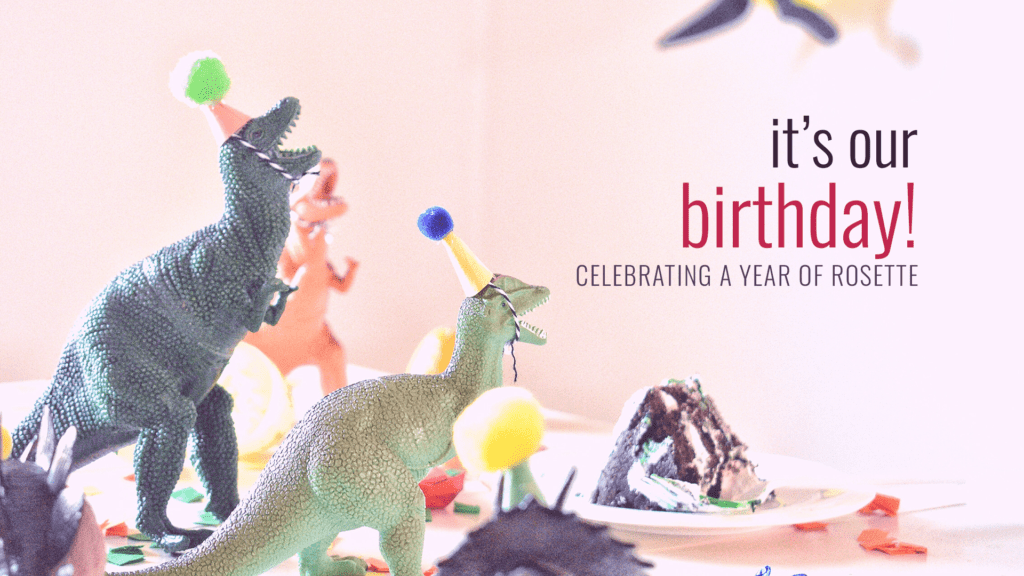The story behind Rosette Fair Trade
I had no idea what fair trade even was 10 years ago.
I’d like to apologize in advance to anyone who was hoping for a story along the lines of, “I’ve always known that social justice was an important part of my life.” I didn’t. I was pretty clueless for a long time. I don’t know if it was my surprisingly conservative upbringing or the tremendous amount of privilege one has as a WASP in Canada, but somehow I totally missed the whole social consciousness train until I was in my twenties.
In 2010, I finally got interested in fair trade because someone mentioned it to me and for some reason, it’d never occurred to me to think about where products come from. (Again, not my brightest moment.) I started researching and everything changed for me overnight. Suddenly, social justice was that thing that I hadn’t even know had been missing from my life. It was my raison d’être.
A place in fair trade
Early on in 2011, I had the fortune of discovering that the Fair Trade Towns program was a thing. I approached Fairtrade Canada and asked if anything was happening yet in Ottawa. They told me that a group of people had set a first meeting for the very next week—just my luck! From that meeting was born Fair Trade Ottawa Équitable, an organization that continues to educate locals about fair trade. This little organization is chock full of amazing people, and I’m proud to be one of the founding members.
Volunteering with Fair Trade Ottawa Équitable (or FTOÉ, as we like to call it) taught me a lot of things. For one, it taught me that fair trade is complex and ever-evolving. But it also taught me that no matter how much you educate people about fair trade, if you can’t give a good answer when people ask, “Where can I buy fair trade sugar?” then you’ve just undermined the real-life benefit for producers. Producers’ livelihood isn’t just dependent on people knowing what fair trade is; it’s dependent on whether or not they can sell their products to buyers at fair trade prices. And that comes down to connecting consumers with retailers.
Finding fair trade products
By 2011, Fairtrade Canada had launched a tool to help consumers find fair trade products in their area. They called it the Fair Trade Finder. And while it was a great idea and it worked really well for a time, it was crowd-sourced and difficult to monitor for quality and accuracy. With time, it became inaccurate, out-of-date and generally not very helpful, and they eventually retired it. And I started thinking: there has to be a way to sustainably index fair trade products so that consumers can easily find what’s available.
At first, I thought about creating an index. All kinds of testing went on through the FTOÉ website, with various configurations of brand finders, store finders and categories of goods. At the end of the day, it was nearly impossible to keep up with product availability in every single store at any given time.
Then Ethical Tree approached us in hopes of listing businesses that sold fair trade products, and we gave them our store index so that they could create a fair trade section. “At last!” I thought. This was the answer I’d been looking for.
Ethical Tree is great (and I don’t just say that because the founders are friends of mine), because it allows consumers to support businesses that have solid values. If a business carries fair trade coffee, it’s worthwhile to go there for a meeting or lunch with a friend, because you’re helping to support that business’ decision to carry fair trade coffee. But the more time went on, the more I realized that a business-level view wasn’t specific enough for me. It didn’t fill the need that I saw. It didn’t answer the question, “Where do I buy fair trade sugar?”
Setting the wheels in motion
In March 2019, I was at a conference in Ottawa where I met a few small, fair trade business owners. Someone mentioned having an online, multi-brand store, kind of like a fair trade Amazon. At the time, I was mostly working as a marketing consultant, so this was totally up my alley!
I think these small businesses were envisioning gaining exposure and selling more of their fair trade products alongside higher-profile brands. And I totally get that (and support it). But for me, it was also the solution to my problem. This was how I would index fair trade products, and not just locally. An online store could serve the whole country. It could even serve other countries in time.
By March 12th, I had incorporated Rosette federally, launched a bare-bones website and started adding products to it. I wrote a wish list of brands and products and decided that I’d start with 5 suppliers. The idea was to start small to work the kinks out, and then expand. Why not eventually make 5 suppliers into dozens? Why not offer every Canadian brand of fair trade products that exists on the market? What better way to index what’s available than to make everything available on a single platform?
An exciting beginning
April 1, 2019 marks the official launch of Rosette Fair Trade on the Rosette Network. Currently, there are 37 products from 5 different brands, and I look forward to making that list grow! Products currently range from cereal to spices to the usual suspects of tea and chocolate. I cannot wait to see what else we can expand to in the coming months!
Thank you so much for your support of Rosette. I honestly couldn’t do it without you, and I know that we’ll do amazing things together!
In solidarity,
Lia
Pin this for later!




